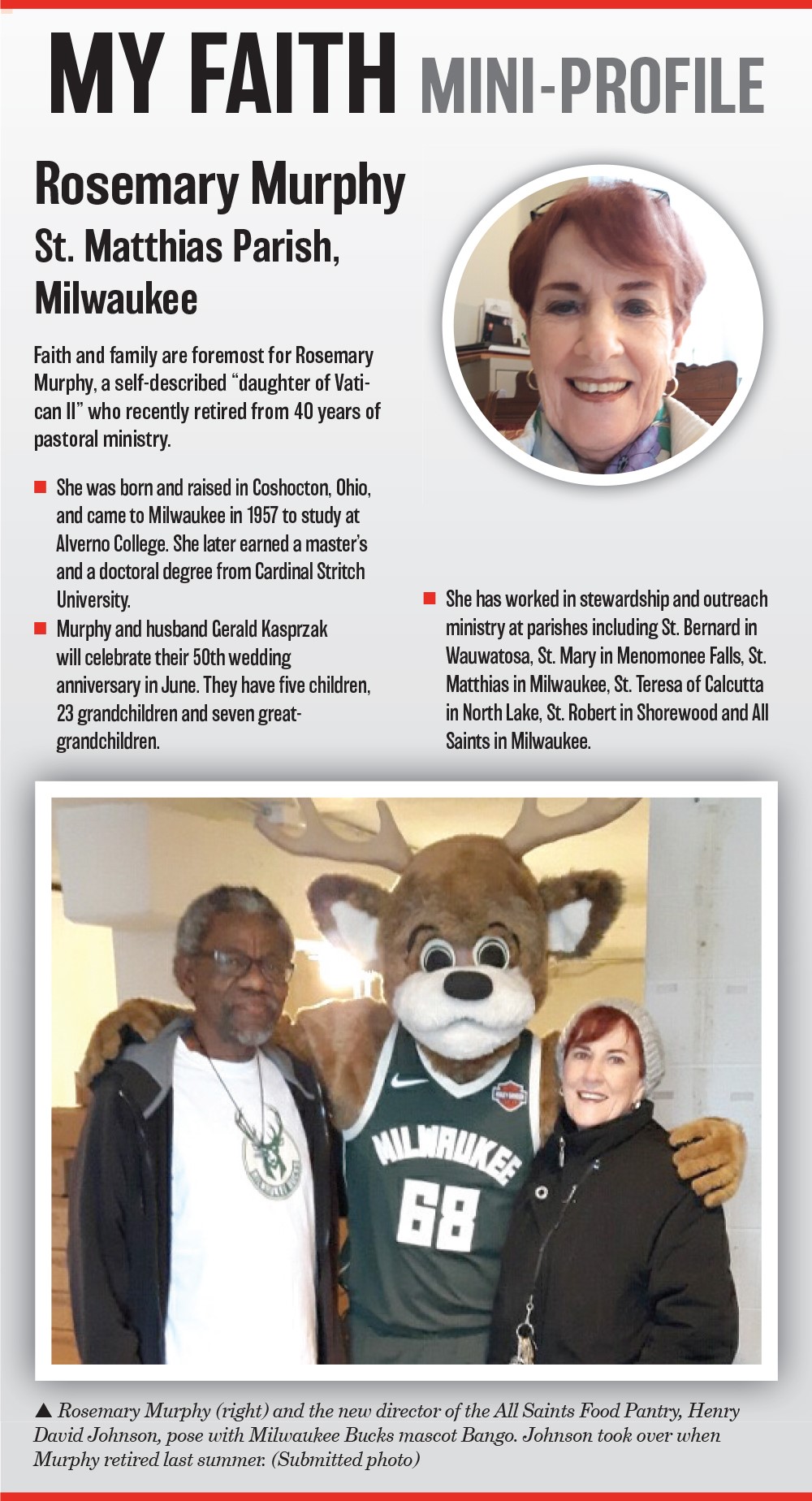Body of Christ
You have described your lifelong Catholic faith as “a gift.” What have been some of the influences that have imparted this gift to you?
Since I retired in June, I’ve had the opportunity to think about my faith and what has really accounted for growth in my faith life. I’ve been very influenced by the Benedictines and my opportunities to visit St. John’s Abbey in Collegeville, Minnesota. I consider myself a real “daughter” of Vatican II, and I have a real love of the liturgy and stewardship. I’ve been influenced by the losses of our baby granddaughter, our adult son and our daughter. I’m also a caregiver now to my husband, who was diagnosed with Parkinson’s in 2019.
What was your early life in Ohio like?
At Sacred Heart High School, there were only 15 of us in our class, so we were all very close. We had the Dominican sisters, and it was a very different high school experience. We did everything together. I often like to tell people that when we had a prom, the sisters would line us up and tell us who was going to the prom with whom. We always had lots of good times and wonderful memories.
How did you fall in love with Collegeville?
One of our classmates, Tom, was a musical prodigy, and everybody just knew he was going to be a priest. He went to Collegeville, Minnesota, to pursue liturgical music (at St. John’s University). He would invite me to come there, which I did, for summer courses, and for his ordination. That was a big influence in my love of the liturgy. I like to say, if anybody ever asks me where heaven is, I tell them it’s in Collegeville, Minnesota. It’s pretty much at the end of the world, and the environment is just so wonderful.
How have you incorporated the documents and the teachings of Vatican II in your own pastoral ministry?
The documents are still very relevant; in the work that I do, I go to them all the time. That’s a big part of the joy of my faith. A lot of my pastoral ministry was in all aspects of stewardship, and every time we needed to put together materials or mission statements or have a theme for something, I would always, always go back to those Vatican II documents. There is always something there.
Your dissertation focused on the theology of lay ministry and elevating the voices of lay ministers. What makes you passionate about that topic?
I kept encountering these wonderful people in my work, and they’re not people who look for recognition at all. I worked in stewardship ministry for many years, and in stewardship it’s very important that you have the support of the staff. When I got to St. Robert’s, the staff was a little larger than some of the other parishes I had been to, and I decided I would interview each one of the staff, just for my own benefit, to ask what I could do to serve them. Their answers were so interesting, I decided to make it into the first chapter of my dissertation.
What were some of their answers?
First of all, they were surprised by the question. “Why are you doing what you’re doing?” It all came down to the same thing — it related to feeling a special call, it related to being dedicated to the Church and to Christ, and making Christ present. I thought I would like to shed some light on who parish staff people are.
Your spiritual journey has included dealing with significant personal loss. How has that affected your understanding of the Christian life?
After our baby granddaughter passed away in 2015, I became very fearful that we were going to turn on the Lord, because we had asked so many people to pray for her and there was a very different outcome from our prayer than what we had hoped for. So I prayed so hard that we wouldn’t turn against the Lord, and through it all, there were graces there that got us through it without losing our faith. Faith is a gift. The thing I just kept clinging to was the line from our Catholic funeral liturgy: “… for the faithful, life is changed, not ended …” I write that now, anytime I write a sympathy card. The love remains with you. That’s what has carried us through.

